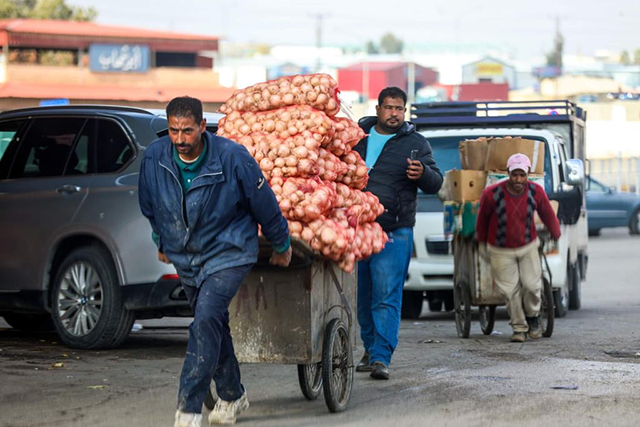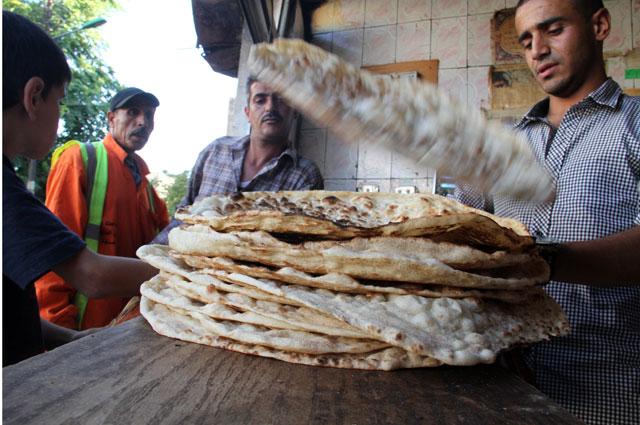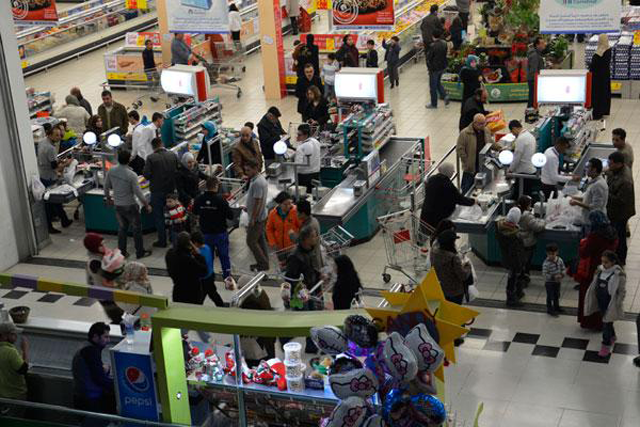You are here
Low purchasing power stands in way of traders ahead of Ramadan
By Mays Ibrahim Mustafa - Mar 22,2023 - Last updated at Mar 22,2023

Essential foodstuff are available in ‘sufficient quantities’ in the local market, according to Chairman of the Jordan Chamber of Commerce Khalil Hajj Tawfiq (Photo by Osama Aqarbeh)
AMMAN — The demand for food commodities ahead of Ramadan is “significantly” lower than last year, according to stakeholders, who mainly attributed this to the low purchasing power in Jordan.
Speaking with The Jordan Times, Qusai Dumairi, a wholesaler, noted that demand for Ramadan consumer goods has decreased by roughly 40 per cent compared with last year, despite announcing “encouraging” discounts.
Mahmoud Elayyan, also a wholesaler, noted that changes in spending habits spurred by consumers’ decreased purchasing power have influenced demand.
“I think it’s because people nowadays buy exactly what they need. They can no longer afford to buy in bulk, as was the habit before Ramadan,” he told The Jordan Times.
Chairman of the Jordan Chamber of Commerce (JCC) and head of the General Association for Foodstuffs Merchants in Jordan (GAFJO), Khalil Hajj Tawfiq, said that Ramadan consumer goods and essential foodstuff are available in “sufficient quantities” in the local market, the Jordan News Agency, Petra reported on Monday.
He also pointed out that the prices of some food commodities, such as certain varieties of rice and meat, as well as sugar, witnessed a “slight” increase, while the prices of other items, including pulses, vegetable oils and nuts commonly used during Ramadan, have decreased.
Demand for food items is still “lower than expected” despite Ramadan’s approach, he noted, predicting that it will increase during the upcoming days, which coincide with monthly salary payments.
Jordanian Rami Najeh said that, while shopping for Ramadan, he noticed that the prices of chicken, along with some types of fruits and vegetables, have increased by roughly 60 to 70 piasters.
“I have gotten rid of the habit of overstocking food ahead of Ramadan. Every year, the prices of some commodities increase unjustifiably before the holy month, then decrease again in a week or two,” he told The Jordan Times.
The foodstuff sector in Jordan comprises roughly 14,000 companies, which include importers, wholesale suppliers and retail stores, providing roughly 200,000 job opportunities, according to the Jordan News Agency, Petra.
Related Articles
AMMAN — Muhannad Abu Hija says he paid higher prices for fresh meat last Ramadan, a sentiment echoed by consumers across Jordan. Vegeta
AMMAN — As the holy month of Ramadan approaches, the National Society for Consumer Protection (CPS) has revealed its monitoring plan to ensu
AMMAN — Foodstuff Traders Association President Khalil HajjTawfiq on Monday stressed that food prices have increased in the local market, no

















